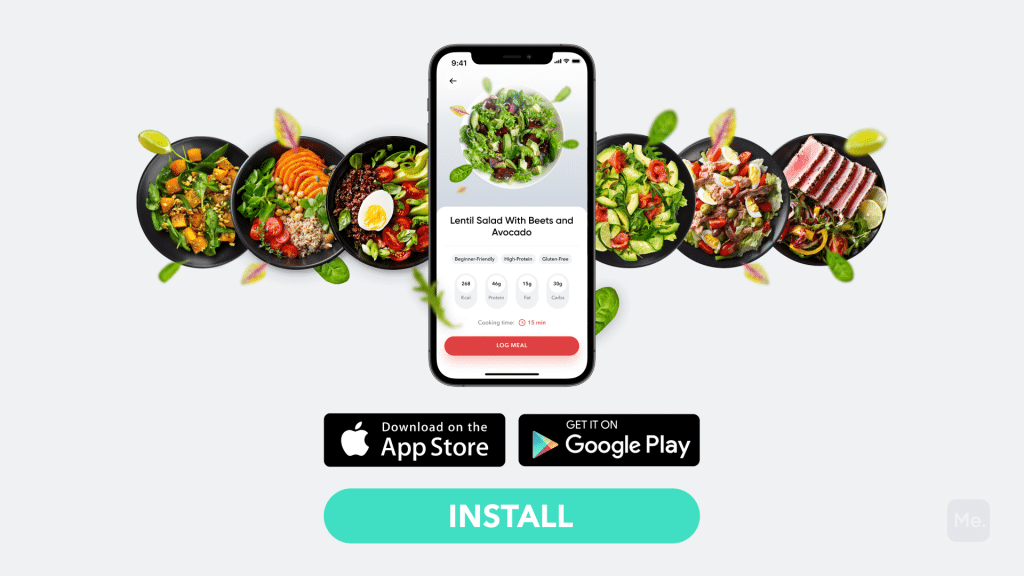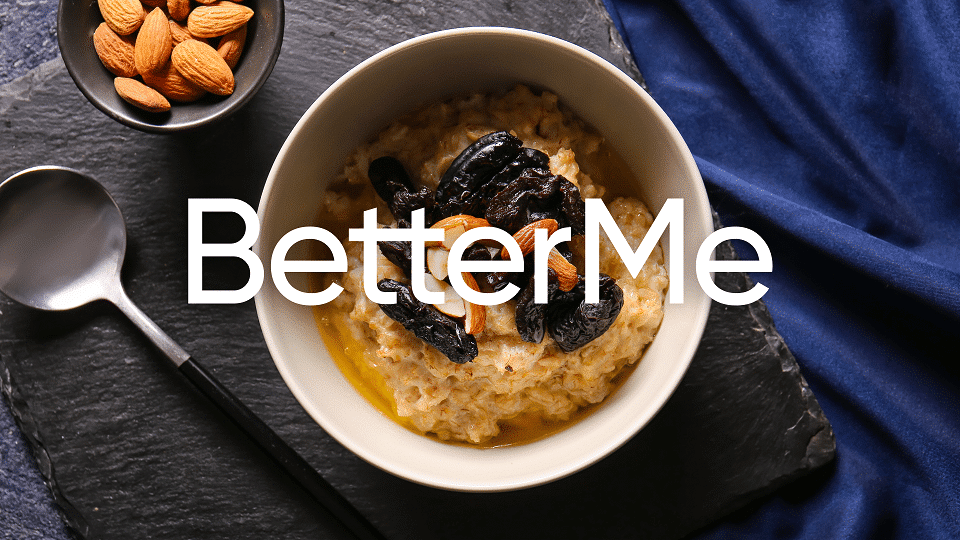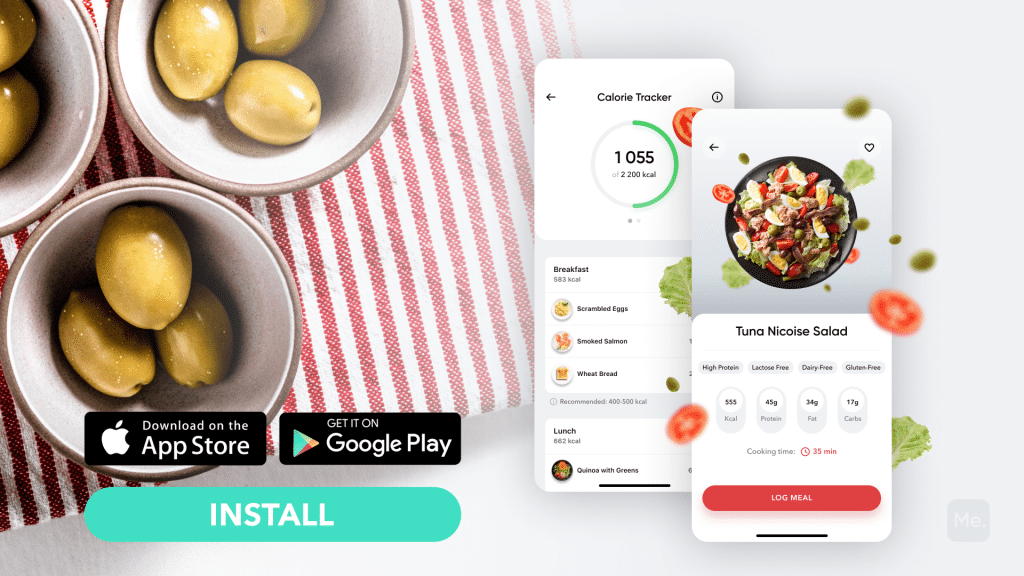We’ve all been there before—you’re there holding a full bowl of buttery popcorn one minute and the next minute it’s empty yet you’re still hungry. You weren’t even that hungry to begin with, but somehow the popcorn disappeared. Sound familiar? If so, you’re not alone. Overeating out of boredom is a common problem. Multiple studies have identified a connection between emotions and eating habits (2). One study found that people who identified as “emotional eaters” were more likely to overeat when they felt bored, angry, or stressed (10). So why do we turn to food when we’re feeling anything but hungry? And how can we break this habit? Here’s what you need to know.
The Feelings, Thoughts, Action Cycle
Your actions (in this case binge eating out of boredom) don’t just happen. They’re influenced by a series of thoughts and emotions that happen in your mind. This is what’s known as the “feelings, thoughts, action cycle.”
When you’re bored, your mind is looking for something to do. This can lead to restless feelings and anxiety.
And when we’re feeling anxious or stressed, our bodies produce the hormone cortisol (14). Research has shown that cortisol can increase our appetite, especially for high-sugar, high-fat foods (13).
That’s not all—feeling bored can also lead to negative self-talk. You might start thinking things like “I’m so bored, there’s nothing to do” or “I’m so bored, I might as well just eat this entire bag of chips.” These thoughts can further increase feelings of anxiety and stress, perpetuating the cycle.
Biting into that creamy cheesecake or finishing off that bag of chips might give you a momentary sense of relief. It triggers the release of the “feel good” hormone dopamine in your brain, providing a sense of pleasure (11).
But once the initial high wears off, you’re left feeling guilty, ashamed, and stressed—which can lead you to seek out more food to make yourself feel better. It’s a vicious cycle.
Read More: Things To Do Instead Of Eating When You’re Bored, Sad, Or Stressed
How To Stop Yourself From Eating Out Of Boredom
Anyone who hasn’t found themselves snacking out of boredom might advise you to “just stop” or “only eat when you’re hungry” But if you’re an emotional eater, that’s easier said than done. You might not even be sure when you’re hungry.
The good news is, there are things you can do to break the cycle.
1. Identify Your Triggers
Normally, hunger triggers our bodies to release a hormone called ghrelin. This hormone signals to our brain that it’s time to eat (6). But if you’re an emotional eater, your triggers might not be physical hunger at all (18).
Your triggers for binge eating and your choice of food have everything to do with the five senses—sight, smell, taste, sound, and touch (12).
For example, you might start thinking about food when you see a commercial for your favorite restaurant on TV. Or the smell of cookies baking in the oven might make you crave something sweet.
Touch can also be a trigger—for example, if you’re mindlessly eating out of a bag of chips, you might not notice how much you’re eating until the bag is empty.
The first step to breaking the cycle is identifying your triggers. Once you know what sets off your urge to eat, you can be on the lookout for those triggers and have a plan in place to avoid them.
2. Distinguish Psychological And Physical Hunger
One of the most difficult things about emotional eating is that it’s not always clear when you’re hungry. That’s why it’s important to learn the difference between physical and psychological hunger.
Physical hunger comes on gradually. You might feel a little lightheaded or have a growling stomach. And if you wait to eat, your hunger will continue to increase (7).
Psychological hunger, on the other hand, comes on suddenly. You might have a sudden craving for a specific food or feel the need to eat even if you’re not physically hungry. And if you wait to eat, your hunger will go away (4).
Other tell-tale signs that you’re experiencing psychological hunger include eating even when you’re not hungry, eating to avoid negative emotions, and using food as a reward.
You can also use time as a way to tell the difference between physical and psychological hunger. How many hours have passed since your last meal?
On average, your stomach takes about three to four hours to digest a meal. So if it’s been less than three hours since you’ve eaten, chances are you’re not hungry—you’re just bored or looking for a quick fix.
Want to build an attention-grabbing bubble butt, blast away fat that’s stored in all the wrong places, spring-clean your diet, turn back the clock on your skin, skyrocket your self-confidence and shatter your insecurities? Check out the BetterMe app and set this plan in motion!
3. Don’t Rely On Willpower
Willpower can only last so long. Eventually, you’ll get tired of saying no to yourself and give in to your cravings. Each time you open your fridge or cupboard, you’ll be reminded of the food you’re trying to avoid.
A better strategy is to remove the temptation entirely. If there’s a particular food you can’t resist, don’t keep it in the house. Out of sight, out of mind.
Consider doing a pantry and fridge reset—throw out all the unhealthy snacks and junk food, and restock your kitchen with healthy, whole foods. This way, when you’re looking for something to eat, you won’t be tempted by unhealthy options.
Healthy snack swaps include:
- Fresh fruit or vegetables instead of candy or cake
- Nuts or seeds instead of chips
- Greek yogurt instead of ice cream
- Popcorn instead of cookies
4. Find A Distraction
When you’re bored, your mind is essentially idle. And when your mind is idle, it’s more likely to wander—straight to the fridge (5).
The best way to combat this is to find a distraction. Something that will occupy your mind and keep you from thinking about food.
Your distraction must be one that forces you to disengage from whatever you’re doing—in other words, it can’t be something that you can do while also thinking about food.
It can be as small as drinking a glass of water or taking a walk around the block. Or it could be something more involved, like taking up a new hobby.
The key is to find something that works for you and that you can do at the moment. That way, when you’re feeling bored and the urge to eat strikes, you’ll have a go-to distraction.
Remember that the simpler and more accessible the distraction, the more likely you are to do it.
Read More: Why Am I Hungry After Eating? Figuring Out Why Those Hunger Pangs Won’t Go Away
5. Eat
It might seem counterintuitive, but eating can be an effective way to combat boredom eating. Eating the right thing, at the right time, in the right manner can help to take the edge off your hunger and keep you from overeating later on.
6. Embrace Boredom
Needing constant stimulation is a surefire way to set yourself up for boredom eating.
Instead of trying to fight off boredom, embrace it. This doesn’t mean that you should sit around and do nothing, but it does mean that you should learn to be comfortable with periods of downtime.
Start by scheduling some time each day to do nothing but relax. This can be used for reading, taking a bath, meditating, or anything else that you enjoy.
The key is to find activities that you can do without feeling the need to eat.
What You Should Eat?
A diet rich in whole foods is always a good idea. But when you’re trying to combat boredom eating, certain foods can be particularly helpful.
Foods that are high in protein and fiber are especially beneficial, as they help to keep you full and satisfied (9). Good options include:
- Eggs
- Nuts
- Legumes
- Whole grains
- Chicken
- Fish
- Vegetables
On the other hand, sugary and processed foods will only make you feel worse. Not only are they devoid of the nutrients your body needs, but they also cause blood sugar spikes and crashes that can leave you feeling tired, irritable, and even more likely to experience cravings and eat out of boredom (3) (15).
When To Eat?
The timing of your meals can also affect how likely you are to eat out of boredom. If you wait too long between meals, you’re more likely to get hungry—and be tempted to reach for unhealthy snacks.
On the other hand, if you eat too often, you might ignore your body’s cues and end up eating when you’re not hungry.
As a general rule, it’s best to eat every three to four hours. This will help to keep your hunger at bay and prevent you from getting too hungry.
Find a happy medium by eating three times per day, with snacks in between if needed. This will help to keep your hunger at bay and prevent you from overeating.
When it comes to weight loss, progress is made by inches, not miles, so it’s much harder to track and a lot easier to give up. BetterMe app is your personal trainer, nutritionist and support system all in one. Start using our app to stay on track and hold yourself accountable!
How To Eat?
How you eat can also affect how likely you are to eat out of boredom.
If you’re mindlessly eating in front of the TV or computer, for instance, you’re more likely to eat more than you need to—and be less satisfied afterward (17).
On the other hand, mindful eating can help to prevent boredom eating (1).
Mindful eating is all about being present and aware of what you’re doing. This means paying attention to your food, savoring each bite, and being aware of your hunger and fullness cues (8).
It might seem like a lot of work, but mindful eating can be quite simple. Just try to eat slowly and without distractions. Turn off the TV, put away your phone, and focus on your food.
You might find that you enjoy your meals more—and are less likely to eat out of boredom.
Portion control is another important aspect of mindful eating. Overeating is more likely to occur when you’re not paying attention to your food.
To help you eat mindfully, try using a smaller plate. The appropriate amount of food looks like more when you use a smaller plate, which can help cue your brain that you are satisfied. This will help to prevent you from overeating and make it easier to control your portions (16).
Conclusion
Boredom eating is a common problem, but it’s one that you can overcome. Identifying triggers, eating mindfully, and embracing downtime are all effective ways to combat boredom eating. With a little effort, you can break the cycle and develop healthier eating habits.
DISCLAIMER:
This article is intended for general informational purposes only and does not serve to address individual circumstances. It is not a substitute for professional advice or help and should not be relied on for making any kind of decision-making. Any action taken as a direct or indirect result of the information in this article is entirely at your own risk and is your sole responsibility.
BetterMe, its content staff, and its medical advisors accept no responsibility for inaccuracies, errors, misstatements, inconsistencies, or omissions and specifically disclaim any liability, loss or risk, personal, professional or otherwise, which may be incurred as a consequence, directly or indirectly, of the use and/or application of any content.
You should always seek the advice of your physician or other qualified health provider with any questions you may have regarding a medical condition or your specific situation. Never disregard professional medical advice or delay seeking it because of BetterMe content. If you suspect or think you may have a medical emergency, call your doctor.
SOURCES:
- A structured literature review on the role of mindfulness, mindful eating and intuitive eating in changing eating behaviours: effectiveness and associated potential mechanisms (2017, cambridge.org)
- A systematic review of the association between emotions and eating behaviour in normal and overweight adult populations (2017, journals.sagepub.com)
- Consumption of ultra-processed foods and health status: a systematic review and meta-analysis (2020, cambridge.org)
- Decoding Your Hunger: Are You Really Hungry or Not? (2019, health.clevelandclinic.org)
- Eaten up by boredom: consuming food to escape awareness of the bored self (2015, frontiersin.org)
- Ghrelin: much more than a hunger hormone (2013, ncbi.nlm.nih.gov)
- Hunger and Satiety Mechanisms and Their Potential Exploitation in the Regulation of Food Intake (2016, link.springer.com)
- Mindful Eating: The Art of Presence While You Eat (2017, diabetesjournals.org)
- Optimising foods for satiety (2015, sciencedirect.com)
- Perceptions of emotional eating behavior. A qualitative study of college students – ScienceDirect (2013, sciencedirect.com)
- Reward, dopamine and the control of food intake: implications for obesity (2010, ncbi.nlm.nih.gov)
- Sensory influences on food intake control: moving beyond palatability (2015, onlinelibrary.wiley.com)
- Stress and Eating Behaviors (2014, ncbi.nlm.nih.gov)
- The impact of stress on body function: A review (2017, ncbi.nlm.nih.gov)
- Ultra-Processed Foods and Health Outcomes: A Narrative Review (2020, mdpi.com)
- Understanding the science of portion control and the art of downsizing (2018, cambridge.org)
- Watching TV and Food Intake: The Role of Content (2014, journals.plos.org)
- Which factors do provoke binge eating? An exploratory study in eating disorder patients (2004, pubmed.ncbi.nlm.nih.gov)













